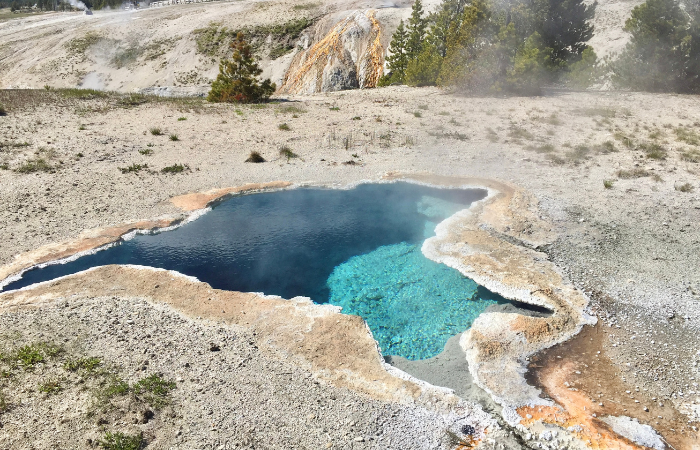Five Strategies for Having Enough Money for Your Dream Retirement – While You’re Still Breathing

Most people think that’s all retirement is about — having enough money to sit on the deck, play golf, and visit the grandkids. But that’s the old model — not today’s retirement. I believe you can revolutionize your retirement even if you can’t count on 80{899b15f80a2d8718204d48354149b0a45e47eff631d37dac5896e2c8e1eedb93} of your current revenue when you stop working. (That’s the secret number according to many retirement experts.)
Someone who turns 65 today can expect to live until age 83, according to the US Bureau of Labor Statistics. So, even if you stop working at the normal retirement age, you’ve got nearly two decades to fill with things that really matter to you. And, if you give up traditional employment sooner, you’ve got even more years to enjoy the “third half” of life. Today the average retirement age is an astonishingly young 57.
I said “enjoy,” and I mean it. To do that, you need to put yourself squarely in the driver’s seat — decide when and how you retire and who you will be. Don’t let someone else’s definition determine your retirement.
So, begin by putting the money issue aside entirely. That’s right. Just forget about money and take a good hard look at the life you want to be living. Start journaling, brainstorm with friends and family, and dream a lot. For inspiration, begin to brainstorm ideas and tools needed to help you plan the perfect retirement for YOU.
OK. So money does have something to do with it. Now’s the time to figure out exactly how much you have and what you’ll need. Maybe you’ll discover that you have enough money to do everything you want to do. Congratulations!
But what if you don’t? Will you need to work until seven years after you’re dead? Or can you still create the retirement of your dreams? Of course you can. Here are some ways to make that happen.
1. First, sharpen your pencil and reconsider how much is enough? Maybe you don’t need to stay in the big house and take care of all that stuff. Perhaps you’d love to simplify your life by living out of your RV as you travel the country. What could you downsize or let go of to buy yourself a more carefree existence?
2. Second, consider supplemental income. Wait a minute, didn’t I just say you were going to stop working? Well, there’s work. And, then there’s work.
Larry was an art teacher in an urban high school for his entire career. In retirement, he followed his passion for painting and also volunteered at a national art society near his home. His experience, enthusiasm and organizational skills so impressed the Director that Larry was offered a part-time position as Assistant Director. Although he has less time for his painting, the supplemental income allows him the luxury of another passion - regular trips to Italy.
3. Maybe you’ve been passionate about your hobby all your life — making woodcarvings, gardening, or playing bridge. What about a part-time job as a gardening assistant during the summer, selling your work at craft fairs, or getting certified as a bridge instructor?
Think about what you love to do, the best times in your life, what you never had time for when you were raising children and working full time. If you love animals, become a pet sitter. Consider working in a day care center, if small children delight you.
4. Try seasonal employment. That’s what Betty and Bob do. They say they’re “rewired,” not “retired.” Each winter they close their Maryland home, pack up her home-based marketing business, and head to Snowmass, Colorado. For the next two months, they work for the ski corporation — alongside college kids from Australia and a few other couples their age. He parks cars and slings skis on busses; she helps families plan their vacations at the resort. The minimum wage they make covers basic expenses; they each get a season’s pass worth $1,799; and they only work a few days each week. The rest of the time they follow their passion on the ski slopes.
Seasonal employment is available at National Parks, community facilities, and as travel hosts to exotic places. Furthermore, there are lots of Web sites that specialize in senior employment.
5. But if you really want to make the most of the “third half” of your life, consider packaging what you know and sharing it with others. That’s what Miriam did. After 30 years of a successful therapy practice, she traded her East Coast home for a West Coast apartment. With her savings and a handsome settlement from her ex-husband, she lived the good life. Then one day the money was gone. Already in her seventies, she picked herself up, buffed up an old passion, and began writing psychological thrillers. Today, Miriam is making more money than she did during her other career and she’s having a lot more fun.
What will it take for you to let go of your outdated beliefs about money and retirement and get inspired to revolutionize the “third half” of your life?
Remember, money is merely one of the 15 “must haves” for a thriving retirement. While taking charge of your life, having dreams for the future, and a purpose that pulls you out of bed in the morning are not as tangible as, say, $1.3 million in assets, they’re just as crucial.







